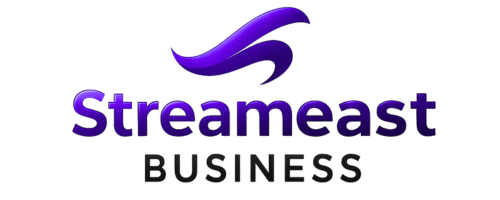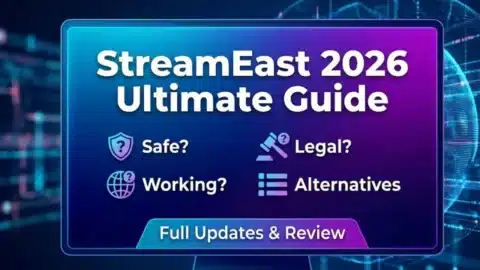For months, discussions about the Xbox Series X End of Era have spread across gaming communities, industry forums and social media. A short remark from an Xbox designer reflecting on “wrapping up this journey” ignited speculation that Microsoft’s flagship console generation was nearing its transition point. But what does “end of an era” really signal? And is it the end of the Xbox Series X as players know it?
The truth is more nuanced than dramatic headlines suggest. This shift isn’t about Xbox abandoning hardware; it’s about a transformation in strategy, technology and how players will experience the ecosystem in the coming years.
This article breaks down what is confirmed, what is changing and what Xbox players should realistically expect as this console era approaches its next phase.
Why People Are Talking About the Xbox Series X End of Era
The phrase didn’t appear out of nowhere. As the Xbox Series X generation passes its mid-life cycle, several changes have been happening across the gaming landscape:
- Microsoft has intensified its focus on PC, cloud and cross-platform gaming
- Several Xbox titles have launched outside the traditional console ecosystem
- Handheld gaming devices and PC-like hybrid hardware have gained traction
- Discussions about next-gen Xbox hardware development have become frequent
The result is a moment where Xbox’s identity is shifting, not away from gaming, but toward a broader, more flexible strategy.
The “end of era” talk is essentially the closing chapter of the Series X|S generation as Xbox prepares for its next hardware evolution.
What Is Actually Confirmed About This Era Ending
There are a few clear points that shape the reality:
1. The Series X generation is transitioning into its late cycle
Console generations historically last six to seven years. The Series X, launched in 2020, naturally enters this phase around now.
2. Next-gen Xbox hardware is actively in development
Microsoft has already stated it is investing in future first-party hardware. This confirms Xbox is not ending, only evolving.
3. Xbox strategy is expanding beyond a single device
Cloud gaming, PC play, handheld innovations and multi-platform experiences are shaping the next chapter.
4. Support is not ending for the Series X
Games, services and digital ecosystems will continue long past the next generation’s release, just as previous Xbox generations remained active for years.
The “end of era” label refers to a shift in focus, not a shutdown.
What Is Speculated (But Not Confirmed)
Some community theories mingle real observations with assumptions. It’s important to separate speculation:
- No official announcement confirming the discontinuation of Series X hardware
- No confirmed release date for the next-gen Xbox
- No details on how long Series X production will continue
These uncertainties fuel the conversation, but none of them are definitive.
Why the Xbox Series X End of Era Feels Different
Historically, console transitions followed a predictable pattern:
Launch → Cross-gen period → Slowdown → New generation
What makes this one feel different is:
- Gaming has become deeply cross-platform
- PC and handheld ecosystems are merging
- Cloud streaming reduces reliance on one physical console
- Competition from PlayStation and Nintendo has increased pressure
- The gaming business model is shifting toward ecosystems instead of exclusives
In short, this “end of era” signals a philosophical transition for Xbox, not an abrupt stop.
How the Industry Reached This Turning Point
1. Cross-platform releases changed expectations
Xbox games appearing on other platforms changed the traditional console identity and reduced the pressure on device exclusivity.
2. Cloud gaming became mainstream
The ability to play anywhere weakened the idea that a single box defined the experience.
3. Player habits shifted
Many players now switch seamlessly between PC, console and mobile, something Xbox has leaned into strategically.
4. Hardware cycles accelerated
Advancements in graphics tech, handheld chips and hybrid designs pushed hardware teams to iterate faster.
All of this collectively contributes to the perception of a closing era.
What the Xbox Series X End of Era Means for Current Owners
Here’s the practical part:
You can keep your console with confidence
Support isn’t ending. Game libraries, services, updates and Game Pass access will continue for years.
New games will remain compatible for a long time
Developers won’t instantly abandon a massive install base.
The Series X will remain relevant even during the next generation
Just as Xbox One continued long after Series X launched, the same cycle will repeat.
Repair and longevity support will continue
Official parts, service tools and repair solutions typically remain available for many years after a console’s main life cycle ends.
It’s still a powerful, future-friendly machine
The Series X remains one of the most capable home consoles even as new hardware is prepared.
Should You Buy a Series X Now or Wait?
This depends on your priorities:
Buy a Series X now if:
- You want the strongest current-value premium console
- You care about Game Pass more than next-gen specs
- Your budget favors today’s pricing
- You want consistent performance today, not years from now
Wait for next-gen if:
- You want the longest possible hardware lifespan
- You care about maximum performance and features
- You only buy new hardware once every long cycle
- You want to see how Xbox evolves its handheld/PC-like direction
Both paths have their merits, but understanding the context helps you choose wisely.
The Future of Xbox Beyond This Era
As the Xbox Series X end of era conversation grows, one thing becomes clear:
A new chapter is coming, but it is built on evolution, not replacement.
The future Xbox experience will likely blend:
- Premium next-gen hardware
- Cloud-enhanced features
- Cross-platform compatibility
- PC-level performance improvements
- Possibly handheld support
- A more ecosystem-driven strategy
This next era won’t erase the Series X, it will redefine how players enter and enjoy the Xbox world.
Conclusion
The Xbox Series X End of Era discussion isn’t a sign of doom; it’s a sign of progression. The Series X remains powerful, supported and relevant, but the gaming world around it is shifting. Microsoft is preparing for a new hardware vision, one that aligns with modern playstyles, cloud-first experiences and a more flexible gaming ecosystem.
Gamers should view this moment with clarity, not panic. The end of one era simply means the beginning of another, and the next chapter of Xbox looks more innovative than ever.
Frequently Asked Questions
1. Does the Xbox Series X End of Era mean support is ending?
No. Support for Series X will continue for many years. Games, updates and services remain active well into the next generation.
2. Will new Xbox hardware replace the Series X soon?
New hardware is in development, but it will not instantly replace the Series X. Transitions are gradual.
3. Should I avoid buying the Series X because the era is ending?
Not necessarily. The Series X still offers excellent performance and long-term value. Only skip it if you specifically want next-gen hardware features.
4. Will Series X games still release after the next console launches?
Yes. Cross-generation releases are standard, and the Series X install base guarantees ongoing game support.
5. Is Xbox moving away from consoles?
No. Xbox is expanding into PC, handheld and cloud, but it is also actively developing future consoles.





